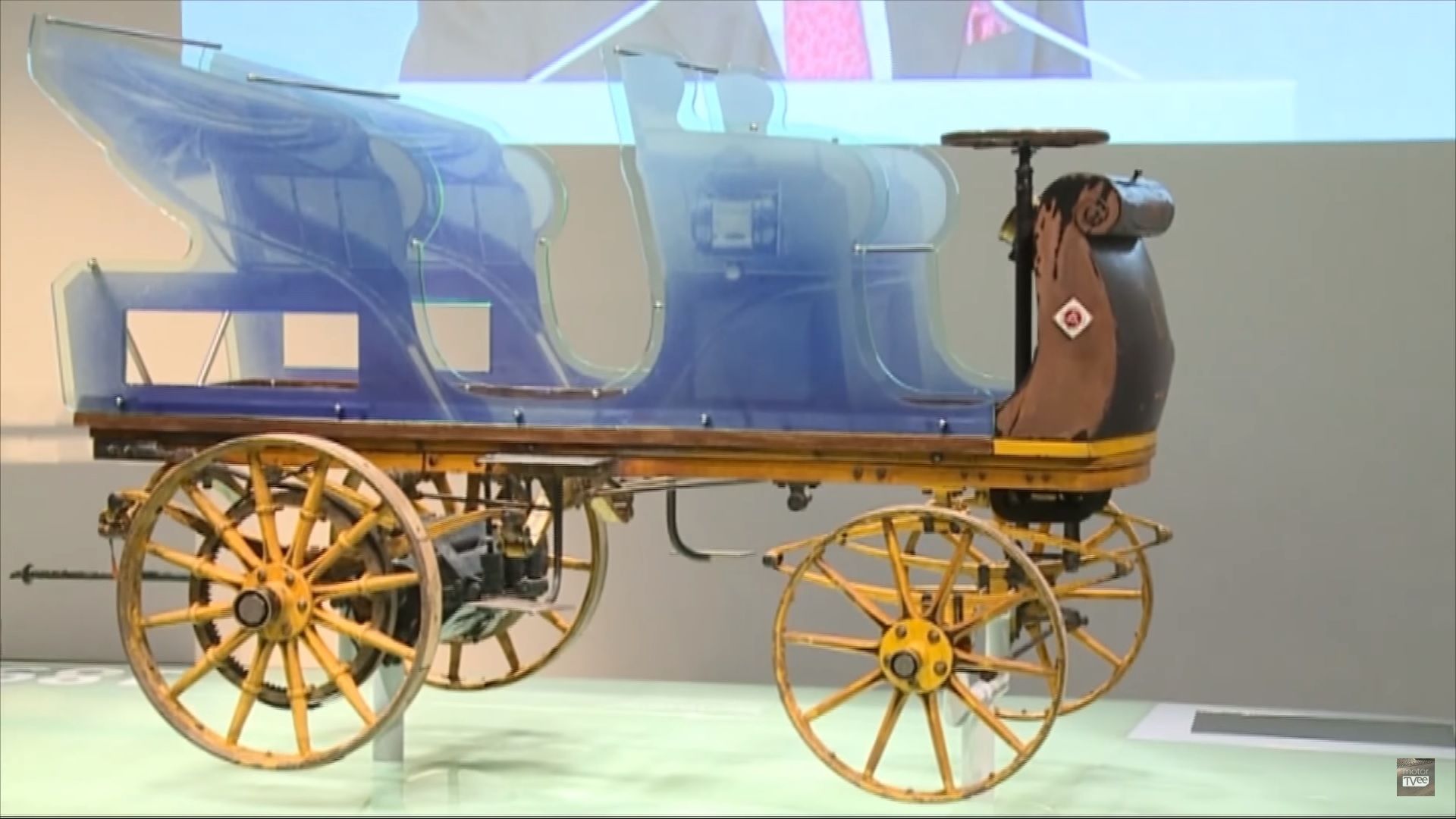Porsche just unveiled the Taycan, an all-electric sports sedan aimed at the Tesla Model S. The Taycan is Porsche's first mass-produced EV, but it's not the first electric vehicle produced by the company. Porsche's history with electrification goes back more than 100 years ago, long before Ferdinand Porsche established his iconic firm in Stuttgart, Germany.
Porsche's First EV Goes back to 1898
Believe it or not, but Ferdinand Porsche designed an electric car in the late 1890s. Called the P1, it went into production in 1898, when Ferdinand was only 23 years old. Also known as the Egger-Lohner or the C.2 Phaeton, it resembled a carriage and it's out of wood, like most automobiles from the era. The electric motor is powered by Tudor Batteries, a company that still exists under Exide Technologies.
Designed for Lohner-Werke, a luxury coachbuilding firm from Vienna, Austria, the P1 was driven by Ferdinand Porsche in a road race in Berlin, Germany, in 1899. Ferdinand won the race by crossing the finish line 18 minutes ahead of the second-place vehicle. The P1 went missing in 1902 and it was rediscovered in 2014, after spending 112 years in a warehouse in Austria. The P1 still has a working electric motors, but the batteries and the seats are gone. You can find it on display at the Porsche Museum in Stuttgart, Germany.
Early Hybrid Work
The Porsche P1 never became more than a prototype, so Porsche started working on a new project toward the end of the 1890s. This time around he developed a hybrid vehicles called the Lohner-Porsche Mixed Hybrid. Powered by two or four electric motors driven by a battery and a gasoline engine, the Lohner-Porsche was in fact the world's first gas-electric hybrid. The original had only two motors, but Porsche later added an electric motor to each wheel, creating an early AWD system.
The road to the outstanding Taycan
Ferdinand abandoned electrification when it established Porsche as a carmaker. However, Porsche built its first hybrid vehicle (with the help of the Volkswagen Group), based on the Cayenne SUV, in 2010. More advanced and powerful variants followed and Porsche eventually launched hybrid versions of the Panamera sedan. In 2014, Porsche introduced the 919 Hybrid race car that competed in the FIA World Endurance Championship until 2017.
Two years later and the Taycan broke cover as the company's first mass-produced electric car. Needless to say, the Taycan is a vehicle that Ferdinand Porsche would have been proud of.
Further Reading
Porsche Revealed The Taycan And It Is An Electric Game Changer
Read our full review on the 2020 Porsche Taycan.
Read our full review on the 2020 Porsche Taycan CUV.
Read our full speculative review on the 2020 Porsche Taycan Sport Turismo.
Read our full speculative review on the 2021 Porsche Taycan GTS.
Read our full review on the 2018 Porsche Mission E Cross Turismo Concept.
Read our full review on the 2015 Porsche Mission E Concept.

